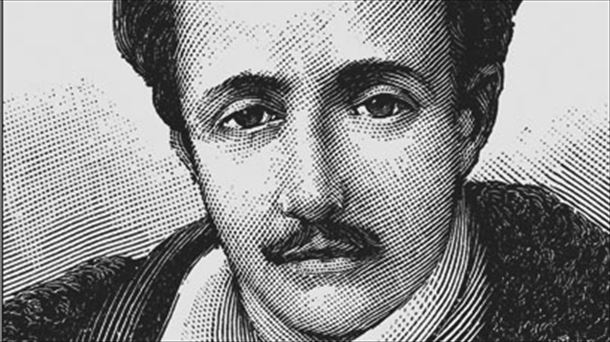Leading scientist – once president of the French Academy of Sciences – and key promoter and defender of the Basques. Anton Abadia was both. During his career, he won numerous scientific accolades while also founding the first festivals celebrating the Basque people and their culture. His impact was so great that, in 1997 – one hundred years after his death – his life was celebrated by both academics and politicians.

- Anton Abadia, also known as Antoine Thomson d’Abbadie d’Arrast in French, was born on January 3 or 10, 1810 in Dublin, Ireland. His mother was Irish while his father, Michel Abbadie, was from Ürrüstoi-Larrabile in Zuberoa. When he was a child, his family moved to France where he and his two brothers received an education focus on the physical sciences. When Anton was 19, he was awarded his degree.
- As a scientist, Anton traveled the globe. In 1835, he went to Brazil to study the magnetic field of the Earth. A few years later, he went with his brother on a decade-long trip to what today is northern Ethiopia and Eritrea, where they studied the region, focusing on the geography, geology, and natural history of the country. He also compiled a 15,000 word dictionary of the Amharic language. He was a lover of languages, speaking some 14, including both the Souletin and Lapurdian dialects of Euskara. He also promoted the Catholic faith while he was in Africa.
- He later traveled to Norway (in 1851) and Briviesca (in 1860) to observe solar eclipses. In 1882 he went to Santo Domingo to study the passage of Venus in front of the sun.
- In addition to his scientific life, Anton was also a strong proponent of the Basque culture and people. In 1853, he started Basque festivals in Urruña. The first several where held here, but later festivals traveled around Euskal Herria, continuing on until his death in 1897. All aspects of Basque culture found a home in these festivals, including poetry, sports, and religion. He rewarded participants with an ounce of gold and a makila plated in silver. Anton himself would sing with particular affection the song Aitarik ez dut (I don’t have a father). He was the first to coin the phrase Zazpiak Bat, representing the unity of the seven Basque provinces.
- As a sign of his pride in his Basque heritage, he once wrote: “We Basques are a secret, we are not like other peoples, proud of their origins and full of national traditions. If we have a founder, a first ancestor, it is Adam.”
- In 1859, he married Virginie Vincent de Saint-Bonnet. They settled in Hendaia where they built a castle which he named Abadia and Anton became mayor of the city from 1871 to 1875. Earlier, he had become a knight of the Legion of Honour and a member of the French Academy of Sciences. Upon his death in 1897, he left his estate to the Academy on the condition that, within 50 years, they completed a catalog of at least half a million stars.
- The castle, which today is a museum and can be toured, consisted of three parts: a scientific wing, where he housed his instruments, particularly his observatory; a residential wing for him and his wife; and a chapel. The castle is adorned with inscriptions in the 14 different languages Anton knew.
Primary sources: Auñamendi Entziklopedia. Abadia, Anton (1810-1897). Available at: https://aunamendi.eusko-ikaskuntza.eus/en/abadia-anton-1810-1897/ar-611/; Antoine Thomson d’Abbadie, Wikipedia; Anton Abidia, Wikipedia
Discover more from Buber's Basque Page
Subscribe to get the latest posts sent to your email.


One thought on “Basque Fact of the Week: Anton Abadia, the Basque Scientist Who Promoted Basque Culture”